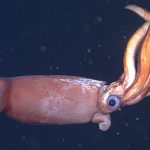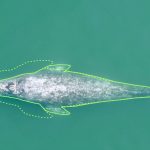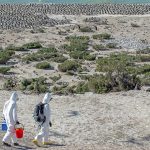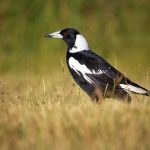Scientists map the genome of the last wild horse species
Researchers from the University of Minnesota have achieved a significant milestone by mapping the complete genome of the Przewalski's horse, the last wild horse...
Scientists develop amber-like polymer to preserve DNA at room temperature
Inspired by the movie "Jurassic Park," MIT researchers have created a new amber-like polymer that can store DNA at room temperature.
This innovative method could...
Ocean algae found to play big role in cooling the earth
A new study has revealed that a common type of ocean algae plays a significant role in cooling the Earth's climate.
Researchers from the University...
Scientists discover how ancient microbes use hydrogen for energy
An international team of scientists has made a breakthrough in understanding archaea, a type of ancient microbe that is a distant ancestor of humans.
These...
Underwater robots discover giant egg-brooding squid in deep sea
The deep sea is Earth's largest living space, but many of its inhabitants remain a mystery.
Advanced underwater robots from the Monterey Bay Aquarium Research...
Pacific coast gray whales have become 13% shorter, shows study
Gray whales that feed along the Pacific Northwest coast have become 13% shorter over the past 20-30 years, according to a new study from...
Scientists discover massive insect migration through 30-meter Pyrenees pass
Every year, over 17 million insects migrate through a narrow 30-meter pass in the Pyrenees mountains, situated between France and Spain.
This remarkable discovery was...
World’s heaviest soaring bird boosts wind turbine efficiency
Mechanical engineers at the University of Alberta have found inspiration in the Andean condor, the world's heaviest soaring bird, to improve wind turbine design.
Working...
Elephant seal outbreak highlights first global spread of bird flu in mammals
A new study has revealed that highly pathogenic H5N1 avian influenza (bird flu) is adapting to mammals in ways that could have serious global...
Mean magpies are less intelligent, study finds
Researchers at The University of Western Australia have discovered that magpies that are aggressive towards other members of their group tend to be less...










